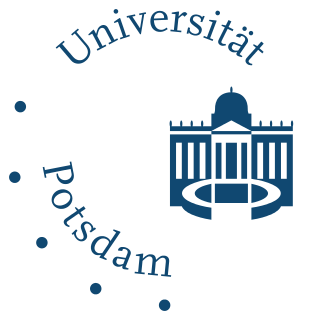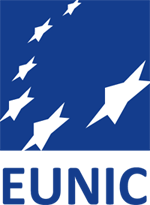
Finland, officially the Republic of Finland, is a Nordic country in Northern Europe. It shares land borders with Sweden to the northwest, Norway to the north, and Russia to the east, with the Gulf of Bothnia to the west and the Gulf of Finland across Estonia to the south. Finland covers an area of 338,455 square kilometres (130,678 sq mi) with a population of 5.6 million. Helsinki is the capital and largest city, forming a larger metropolitan area with the neighbouring cities of Espoo, Kauniainen, and Vantaa. The vast majority of the population are ethnic Finns. Finnish, alongside Swedish, are the official languages. Swedish is the native language of 5.2% of the population. Finland's climate varies from humid continental in the south to the boreal in the north. The land cover is primarily a boreal forest biome, with more than 180,000 recorded lakes.

The foreign relations of Finland are the responsibility of the president of Finland, who leads foreign policy in cooperation with the government. Implicitly the government is responsible for internal policy and decision making in the European Union. Within the government, preparative discussions are conducted in the government committee of foreign and security policy, which includes the Prime Minister and at least the Minister of Foreign Affairs and the Minister of Defence, and at most four other ministers as necessary. The committee meets with the President as necessary. Laws concerning foreign relations are discussed in the parliamentary committee of foreign relations. The Ministry of Foreign Affairs implements the foreign policy.

The University of Tartu is a university in the city of Tartu in Estonia. It is the national university of Estonia. It is the only classical university in the country, and also its biggest and most prestigious university. It was founded under the name of Academia Gustaviana in 1632 by Baron Johan Skytte, the Governor-General (1629–1634) of Swedish Livonia, Ingria, and Karelia, with the required ratification provided by his long-time friend and former student – from age 7 –, King Gustavus Adolphus, shortly before the king's death on 6 November in the Battle of Lützen (1632), during the Thirty Years' War (1618–1648).
A national academy is an organizational body, usually operating with state financial support and approval, that co-ordinates scholarly research activities and standards for academic disciplines, most frequently in the sciences but also the humanities. Typically the country's learned societies in individual disciplines will liaise with or be co-ordinated by the national academy. National academies play an important organisational role in academic exchanges and collaborations between countries.
The Europaeum is a network of eighteen universities in Europe. It was conceived of in 1990–1991 by Lord Weidenfeld and Sir Ronnie Grierson and they persuaded Roy Jenkins, who had just become Chancellor of the University of Oxford, to push this initiative in conjunction with the universities of Leiden, and Bologna. It has subsequently been supporting the "advancement of education through the encouragement of European studies in the University of Oxford and other European institutions of higher education having links with Oxford."

Yrjö Kalervo Sotamaa is a Finnish designer and design strategist. Sotamaa is Professor Emeritus of Design Innovation in the Aalto University School of Art, Design and Architecture and President Emeritus of the University of Art and Design Helsinki (TAIK). He served as the President of TAIK from 1986 until 2008. He earned his MA in Interior Architecture and Furniture Design from TAIK, where he studied with Kaj Franck and Antti Nurmesniemi.

The University of Potsdam is a public university in Potsdam, capital of the state of Brandenburg, Germany. It is mainly situated across three campuses in the city. Some faculty buildings are part of the New Palace of Sanssouci which is known for its UNESCO World Heritage status.
The European Association of History Educators (EuroClio) was established in 1992 with the support of the Council of Europe. The NGO works as a European wide facilitator for innovation and progress in history Education. The organisation contributes not only to the development, but also on the actual implementation of regional, national and European long-term projects, which focus on establishing knowledge, experience and expertise in the countries by training and consulting teachers. EuroClio develops teaching materials, builds and maintains professional Networks and acts as advisor to governments, international organisations, NGOs, History Teacher Associations and other Organisations. EuroClio is supported by the Europe for Citizens Programme of the European Union and has, for many years, Official Participatory Status and is part of the EU Stake Holder's Network in Education and Training.
In 1997, eleven European universities came together to establish the European Consortium of Innovative Universities (ECIU). The consortium is a group of universities dedicated to the development of an innovative culture in their institutions, and to a catalytic role for innovation in industry and society. All have academic strengths in engineering and social science; all are relatively young, entrepreneurial, and progressive; and all have close ties to industry and to the regions in which they are situated. They are committed to developing and implementing new forms of teaching, training, and research; to developing an innovative culture within their walls; to experimenting with new forms of management and administration; and to sustaining and nurturing internationally minded staff.

The European Union National Institutes for Culture (EUNIC) is a network of European national institutes of culture and national bodies engaged in cultural and related activities beyond their national borders. EUNIC brings together organizations from all 27 EU member states and adds value through its global network of clusters. By pooling together the resources and expertise of its members and carrying out joint work on common areas of interest, EUNIC is a recognized partner of the EU and its stakeholders in defining and implementing European policy on culture inside and outside the EU.
The Compendium of Cultural Policies and Trends is a web-based and permanently updated information and monitoring system of national cultural policies in Europe.

The Finnish Institute at Athens is a scientific institute of Finland, operating in Athens, Greece. The institute's main objective is to practice and promote research on Greek archaeology, history, language and culture from antiquity until the present day. It is one of the 19 foreign archaeological institutes operating in Greece.
The Archimedes Foundation is an independent body established by the Estonian government in 1997 with the objective to coordinate and implement different international and national programmes and projects in the field of training, education, research, technological development and innovation.

Metropolia University of Applied Sciences is the largest University of Applied Sciences in Finland situated in Helsinki metropolitan area. The university has four fields of study: culture, business, health care and social services, and technology. Teaching is also provided in English.
The Finnish Institute in the UK and Ireland, formerly the Finnish Institute in London is a non-profit, private foundation, funded principally by the Finnish Ministry of Education and Culture. It is part of the international network of 17 Finnish Cultural and Academic Institutes, and operates in the United Kingdom, the Republic of Ireland and Finland. The Institute runs two programmes: Arts and Society. The Institute belongs to the Team Finland network that supports Finnish diplomacy, business and culture abroad. The institute is a member of EUNIC London, the network of EU member state cultural institutes.

Estonia, officially the Republic of Estonia, is a country in Northern Europe. It is bordered to the north by the Gulf of Finland across from Finland, to the west by the Baltic Sea across from Sweden, to the south by Latvia, and to the east by Lake Peipus and Russia. The territory of Estonia consists of the mainland, the larger islands of Saaremaa and Hiiumaa, and over 2,200 other islands and islets on the eastern coast of the Baltic Sea, covering a total area of 45,339 square kilometres (17,505 sq mi). The capital city Tallinn and Tartu are the two largest urban areas of the country. The Estonian language is the autochthonous and the official language of Estonia; it is the first language of the majority of its population, as well as the world's second most spoken Finnic language.

The OECD Development Centre was established in 1961 as an independent platform for knowledge sharing and policy dialogue between Organisation for Economic Co-operation and Development member countries and developing economies, allowing these countries to interact on an equal footing.
The European Educational Research Association (EERA) is an association of national and regional associations representing educational researchers in Europe. EERA aims to encourage collaboration amongst educational researchers in Europe, promote communication between educational researchers and international governmental organisations and disseminate and highlight state-of-the-art findings of educational research, primarily through the annual European Conference on Educational Research (ECER) and its associated journal, the European Educational Research Journal (EERJ), the EERA Blog and the EERA Book Series - Transdisciplinary Perspectives in Educational Research.

Kaarle Jalmari Jaakkola was a Finnish historian and a professor of Finnish history at the University of Helsinki between 1932 and 1954. Jaakkola is known as a historian who primarily researched medieval history and sought to put forth that Finland existed as an entity already during that period. Some of Jaakkola's hypotheses are today considered to be overtly nationalist and outdated, but his influence during his lifetime remains undisputed.

The Ukrainian Institute is a public institution of Ukraine that represents Ukrainian culture in the world and forms a positive image of Ukraine abroad. The institute was founded by the Cabinet of Ministers of Ukraine in 2017 and is affiliated with the Ministry of Foreign Affairs of Ukraine. It fully began its activities in the summer of 2018, after the appointment to the position of General Director Volodymyr Sheiko, as a result of an open competition and the creation of a team of specialists.












